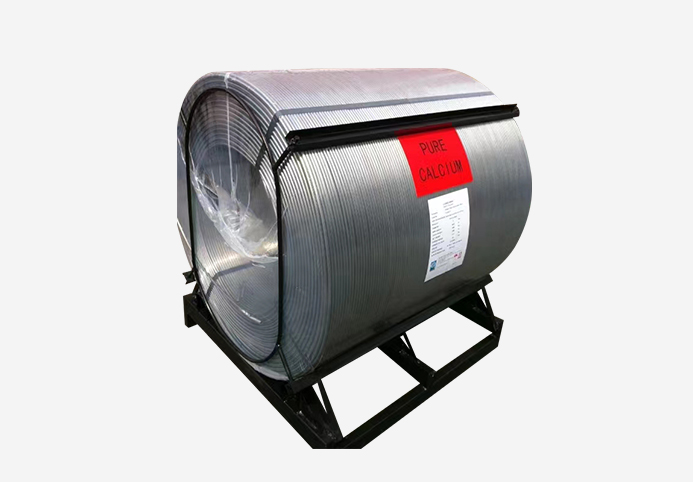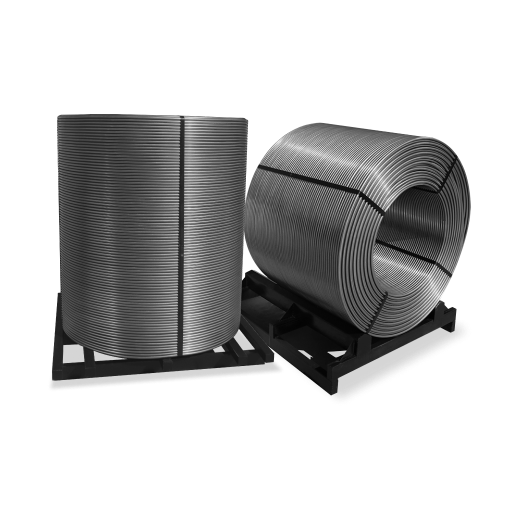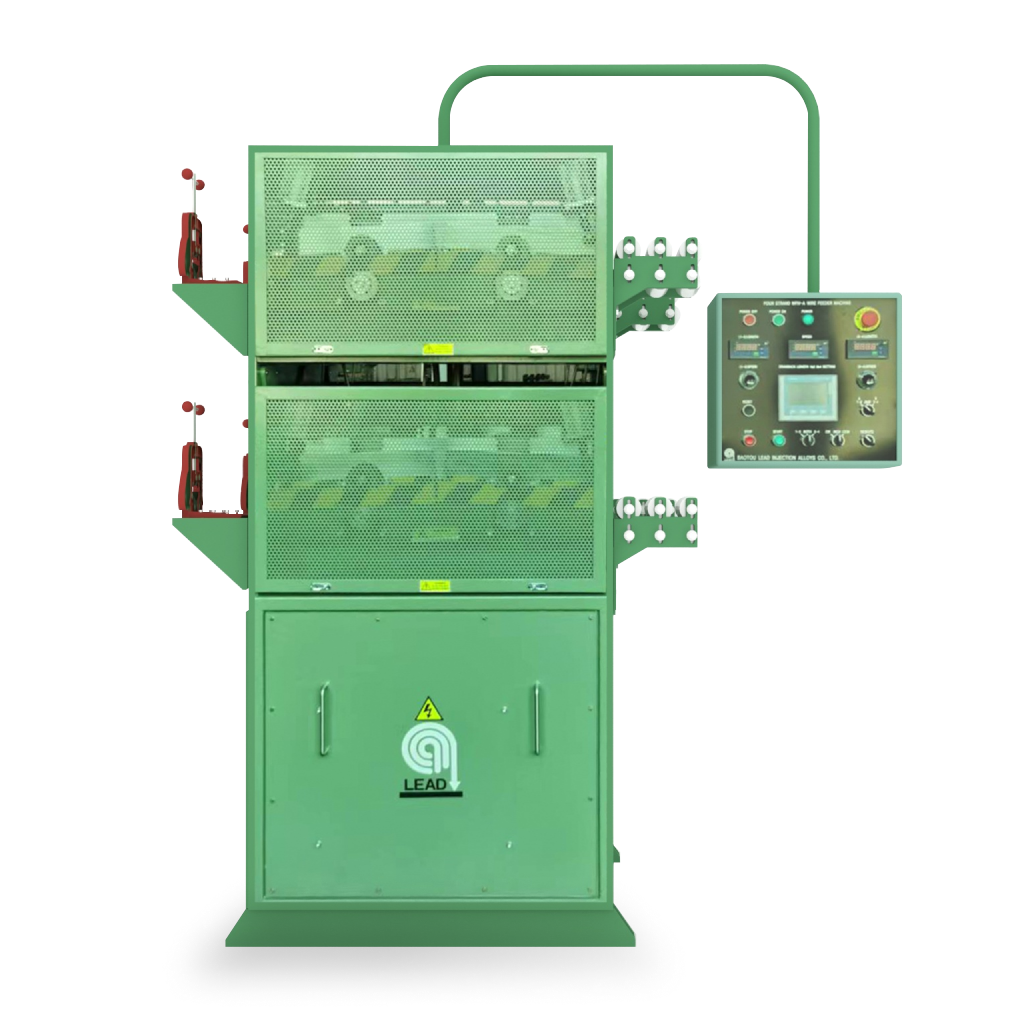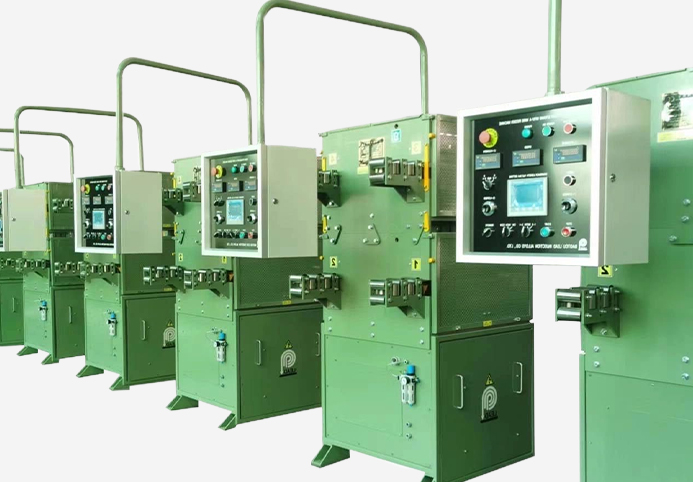
Cored wire technology is one of the most important transformative forces in the realm of steel production, offering a revolutionary approach to alloy addition in the manufacturing process.
Unlike conventional methods, cored wire introduces alloying elements in a controlled and highly efficient manner, impacting the quality and efficiency of steelmaking.
“What is Cored Wire?”
The cored wire consists of a metallic sheath generally surrounding a powdered alloy or solid Calcium rod core. This specialized delivery structure allows for the precise injection of alloying elements directly into the molten metal during steel production. The composition of the alloy core can be tailored to meet specific metallurgical requirements, offering unprecedented control over the steel's final properties.
“The Purpose of Cored Wire: Precision and Efficiency.”
The primary purpose of cored wire is to enhance the precision of alloy addition in steelmaking.
By delivering alloying elements in a controlled and targeted manner, cored wire ensures a more uniform distribution within the molten metal. This precision not only improves the overall quality and consistency of the steel but also minimizes waste, optimizing resource utilization.
Steel manufacturers adopted cored wire technology to achieve greater control over the steel'schemical composition, resulting in improved mechanical properties and reduced environmental impact. The adaptability of cored wire makes it a versatile tool for meeting the diverse and evolving demands of the steel industry.
“How Do I Classify Good and Bad Cored Wires?”
Classifying good and bad cored wire in steelmaking involves considering various factors related to the wire's composition, performance, and impact on the steel production process. Here are key criteria to help differentiate between good and bad cored wire:
1. Alloy Composition:
- Good Cored Wire: Has a well-defined and consistent alloy composition that meets the specific metallurgical requirements of the steel being produced.
- Bad Cored Wire: Shows inconsistencies or variations in alloy composition, leading to unpredictable results in the final steel product.
2. Homogeneity:
- Good Cored Wire: Ensures a homogeneous distribution of alloying elements when introduced into the molten metal, contributing to uniform steel quality.
- Bad Cored Wire: Results in uneven distribution of alloys, potentially causing variations in the steel's properties and compromising its quality.
3. Purity of Materials:
- Good Cored Wire: Utilizes high-quality raw materials, ensuring the absence of impurities that could negatively impact the steel production process.
- Bad Cored Wire: Contains impurities or subpar materials, leading to inconsistencies and potential defects in the final steel product.
4. Ease of Handling:
- Good Cored Wire: Exhibits good handling characteristics, such as ease of feeding into the steelmaking process and minimal breakage during transportation and handling.
- Bad Cored Wire: Fragile or difficult to handle, leading to operational challenges and potential disruptions in the steel production line.
5. Performance Consistency:
- Good Cored Wire: Demonstrates consistent performance over time, maintaining its effectiveness in delivering alloying elements to the molten metal.
- Bad Cored Wire: Shows performance fluctuations, resulting in unpredictable outcomes and potential disruptions to the steelmaking process.
6. Impact on Steel Quality:
- Good Cored Wire: Contributes positively to the desired properties of the steel, such as improved strength, corrosion resistance, and other specified characteristics.
- Bad Cored Wire: May introduce defects or undesirable elements, negatively affecting the final steel product's quality and performance.
Regular quality control measures, such as thorough testing and monitoring of cored wire performance, are crucial to ensuring the consistent production of high-quality steel.
Collaboration with reputable suppliers and adherence to industry standards also play vital roles in distinguishing between good and bad cored wire in steelmaking processes.
Conclusion:
In essence, cored wire technology is reshaping the landscape of steelmaking, offering a more efficient and sustainable path toward high-quality steel production. As industries continue to seek advancements in metallurgy, cored wire technology also keeps updating to satisfy versatile requirements, positioning it as a cornerstone for the future of steel manufacturing.
Baotou Lead Injection Alloys Co., Ltd. is a professional manufacturer of premium cored wires and wire feeder machines to assist you in producing high-quality steel since 2001.








